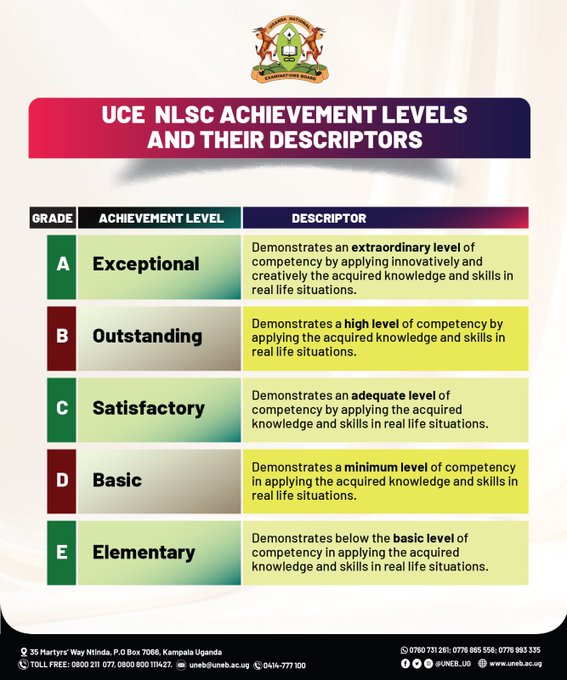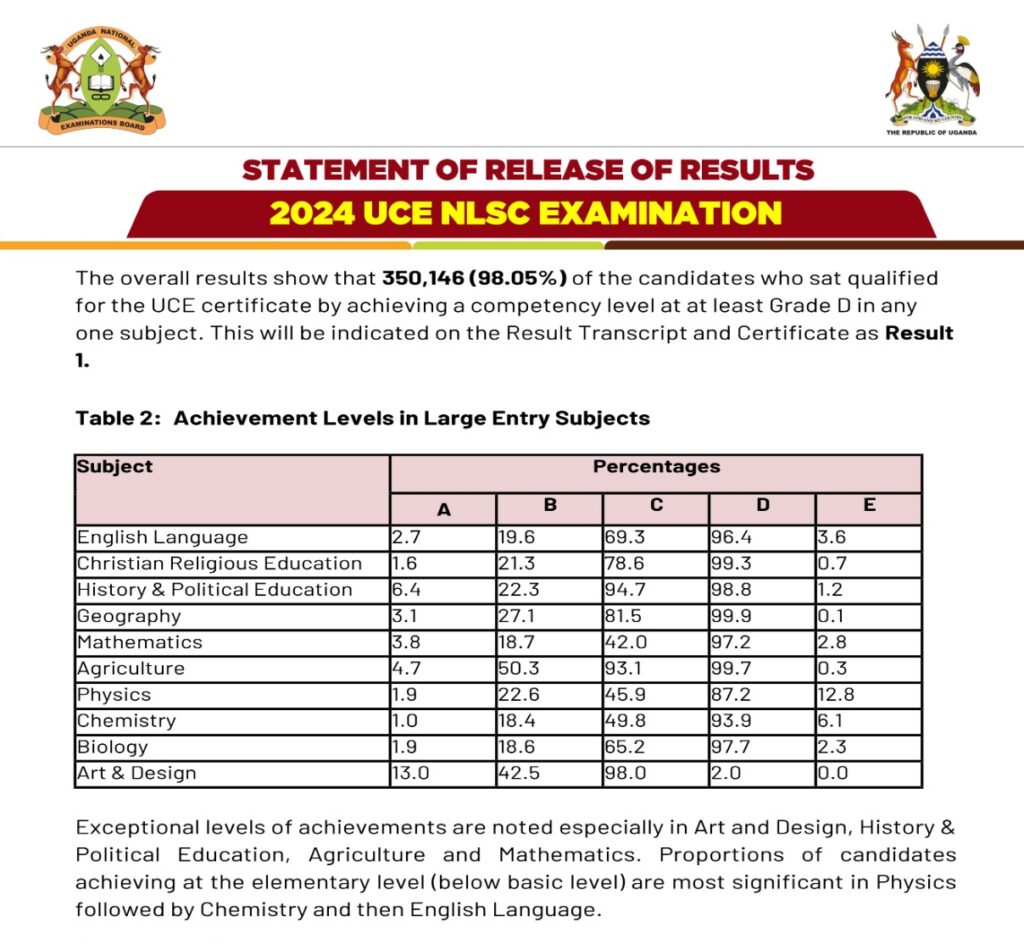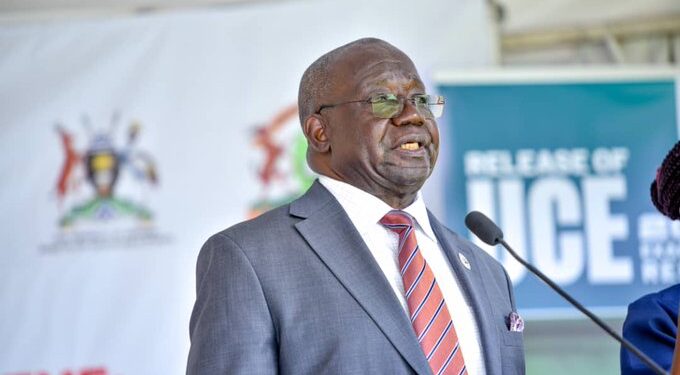The Uganda National Examinations Board (UNEB) has released the results of the 2024 Uganda Certificate of Education (UCE) examination, marking the first cohort of candidates assessed under the competency-based curriculum.
The new curriculum emphasises holistic assessment, measuring students’ competencies in cognitive, affective, and psychomotor domains.
A total of 359,417 candidates registered for the examination, of whom 177,133 (49.3%) were male and 182,284 (50.7%) were female. Among them, 136,785 (38.1%) were beneficiaries of the Universal Secondary Education (USE) programme, while 222,632 (61.9%) were non-USE students.
According to Dan Odongo, UNEB Executive Director, the attendance rate was remarkably high, with 357,120 (99.4%) candidates sitting for the exams, while only 2,297 (0.6%) were absent.
New Grading System and Performance Overview
Unlike the previous system that ranked candidates into divisions, the competency-based assessment reports performance through achievement levels represented by letter grades A, B, C, D, and E.
A candidate qualifies for a UCE certificate if they attain at least a grade D in any subject. According to UNEB, 350,146 candidates (98.05%) qualified for the certificate, which will be indicated as ‘Result 1’ on their transcripts.

Candidates who failed to meet the qualification criteria—either due to missing compulsory subjects, failing to sit for at least eight subjects, or lacking Project Work scores—will have ‘Result 2’ indicated on their transcripts.
Releasing the results at State House Nakasero, Odongo emphasised the significance of this milestone.
“These are the results of the first cohort under the competency-based curriculum. We are excited to have reached this point, despite the challenges in the transition,” he stated.
Challenges and Implementation Struggles
While the rollout of the competency-based curriculum has been largely successful, challenges remain, particularly in the sciences. Many rural and private schools struggle with a lack of well-equipped science laboratories, workshops, and qualified science teachers.
Furthermore, some schools initially resisted the new curriculum, hoping the government would revert to the old system. Their stance changed when UNEB released sample examination papers, prompting them to adjust accordingly.
“The new curriculum requires a skills-based approach, meaning science labs and workshops must be well-equipped to foster self-learning and knowledge creation. Unfortunately, resource constraints remain a major challenge,” Odongo noted.

Capacity Building and Future Prospects
To facilitate the transition, UNEB undertook several initiatives, including training teachers in competency-based assessment, developing a new student identification format for registration and tracking continuous assessment (CA) scores, and sensitizing key education stakeholders.
These efforts ensured that students from all schools, including those without UNEB examination centres, were appropriately assessed.
The 2024 UCE examination was conducted under the theme ‘Embracing Security and Holistic Assessment of Learners in a Dynamic Environment.’ This theme underscored the need for security at all stages of the examination process while adapting to evolving educational trends influenced by technological advancements.
Candidates, parents, and well-wishers can access the results via SMS by sending a message to 6600. To retrieve results, individuals should type “UCE “, leave a space, and then enter the full index number.
Special Instructions for SMS Access:
Transitional Curriculum Candidates: Index numbers end with “T” (e.g., U0000/001T). Include the “T” in the SMS.
New Curriculum Candidates: Use the standard index number format (e.g., Uo000/001).









